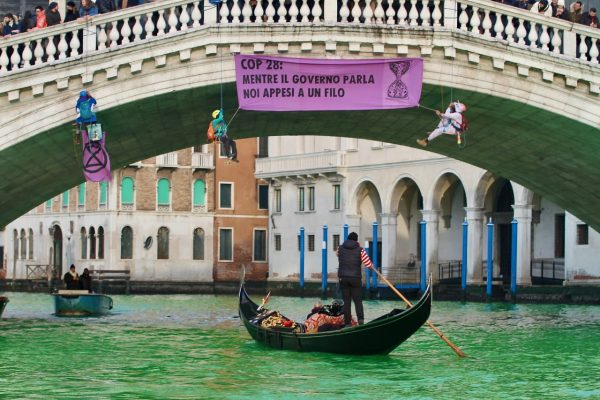Americans Are Paying a Massive Price To Maintain the Empire
Two press reports stood out to me this morning: the release of the names of two US Navy SEALs who drowned two weeks ago in the Arabian Sea and the Air Force’s production authorization for the B21 Raider bomber. Both stories symbolize an imperial inertia that defines American national security policies, an inertia that is damaging our democracy and jeopardizing futures.
The SEALs died taking part in a blockade mission against Yemen, a mission that dates back nearly a decade and is part of a two-decade-long history of US military action against Yemen (the US first launched a drone strike in Yemen in 2002). US policy towards Yemen is part of the larger, failed and counterproductive Global War on Terror, which itself is part of a larger, failed and counterproductive US Middle East policy. US Middle East policy, in its current form, goes back to the 1970s and is part of a larger, failed and counterproductive US militarized foreign policy. Can anyone go to the families of those two SEALs killed carrying out those policies and explain what their deaths were for without resorting to grotesque and false tropes of freedom and security, the same aspirational and patriotic fairy tales that have been used to justify 250-plus military operations by the US since 1991?
The other story relates to the authorization of production of the B21 Raider, which is set to replace the B1 and B2 bombers but not the 70-year-old B52s. That the youngest B52 was produced in 1962 and won’t be replaced, but the bombers built in modern times must be replaced, tells you a great deal about the strategy of the American weapons industry. This fleecing of the American taxpayers by the Military Industrial Complex (MIC) is nothing new. Both political parties have hollowed out the American economy to the benefit of weapons makers. If any citizen has the gall to ask their members of Congress why our living standards are so far below those of the world’s other wealthy nations, the answers come back as some variation of “we can’t afford those things.”
What’s new about the B21 is that the cost for years was classified, even to members of Congress. Budget figures, as well as contract details, production schedules and test results, are still being kept hidden. Reports say Northrup Grumman will produce 100 of the planes, and, with an estimated total program cost of more than $200 billion, keeping quiet about the price tag of $2 billion airplanes is a politically savvy move if not a democratic one.
Alongside the story of the B21 was a reference to the nation’s new intercontinental ballistic missile, the LGM-35 Sentinel, exploding in cost and years behind schedule. Both the Raider and the Sentinel are part of the $2 trillion modernization of American nuclear weapons begun during the Obama Administration. Cynically it is understandable why both the Pentagon and the weapons makers want to keep the B21 program hidden. MIC officials often speak of the lessons learned from the gross cost overruns, lengthy delays and failed testing of weapons systems like the F35, the Littoral Combat Ship and the Future Combat System, among many, many others, and those lessons seem to be: don’t let anyone know what’s going on. The roster of weapons that don’t work and have cost us trillions is seemingly infinite and, in a sanely functioning and non-corrupt democracy, Pentagon budgets would be decreasing, generals would be fired and defense industry share prices would be labeled as SELL. It would be far easier to write about the weapons the US taxpayers have funded that have performed as advertised and stayed within budget, but that would probably only amount to a tweet or two.
The only thing more likely than more American families continuing to lose loved ones to failed and counterproductive overseas wars will be a lack of any effective congressional resistance to US Middle East policy, most urgently Israel’s genocide of the Palestinian people. Likewise, the only thing more likely than the B21 being another poorly performing MIC cash cow will be the lack of meaningful political opposition to the overall MIC gravy train. The inertia of both a militarized foreign policy that, through its actions, creates a circular reality that justifies continued military action and a military-industrial complex that now says the American people don’t have the right to know how much our weapons cost demonstrate a dangerous reality of American democracy and a terrible path ahead.
Reprinted with permission from Matt’s Thoughts on War and Peace.
Matthew Hoh is the Associate Director of the Eisenhower Media Network. Matt is a former Marine Corps captain, Afghanistan State Department officer, a disabled Iraq War veteran and is a Senior Fellow Emeritus with the Center for International Policy. He writes at Substack.





